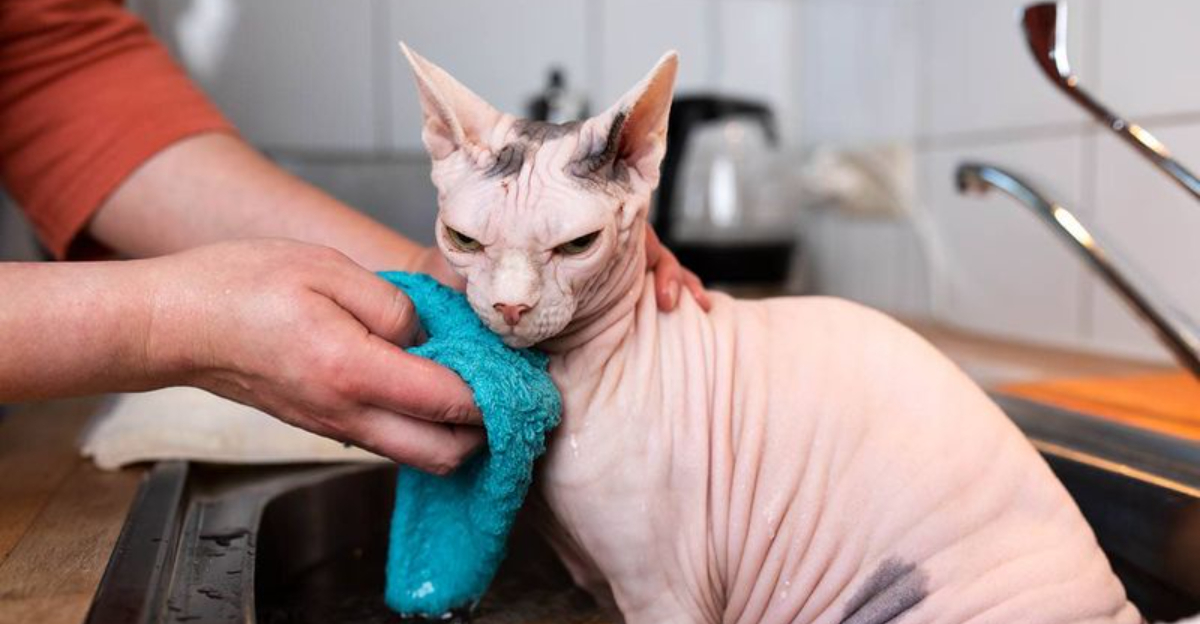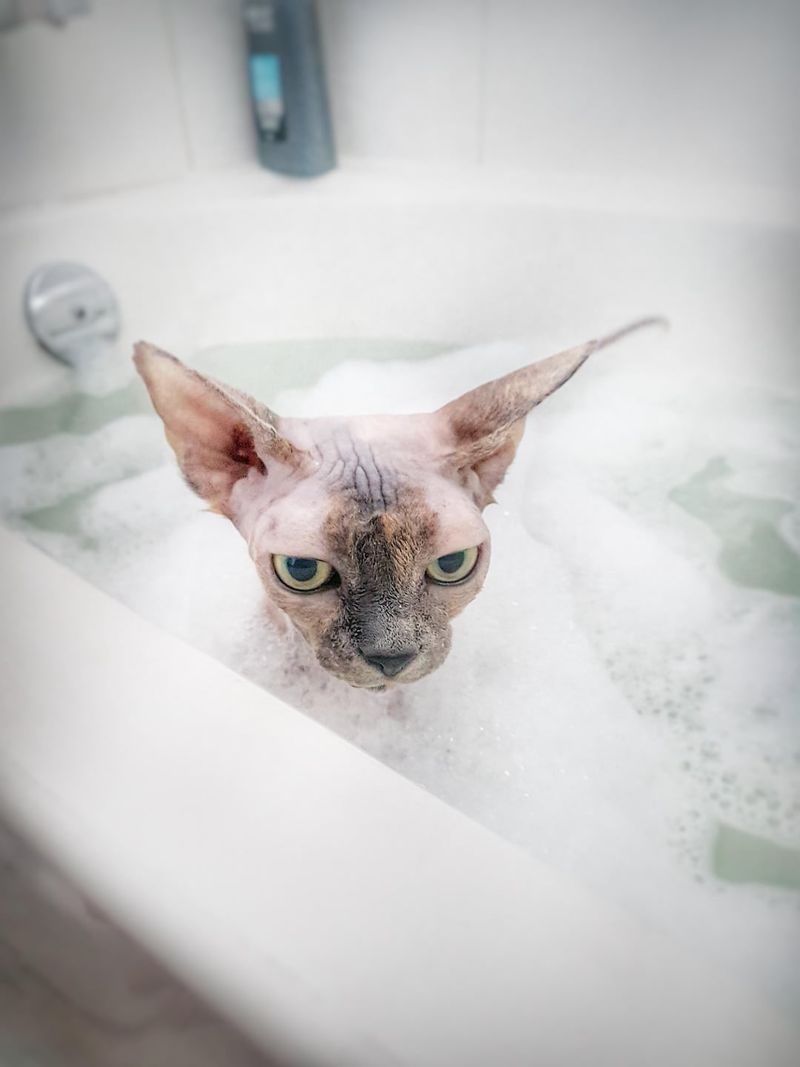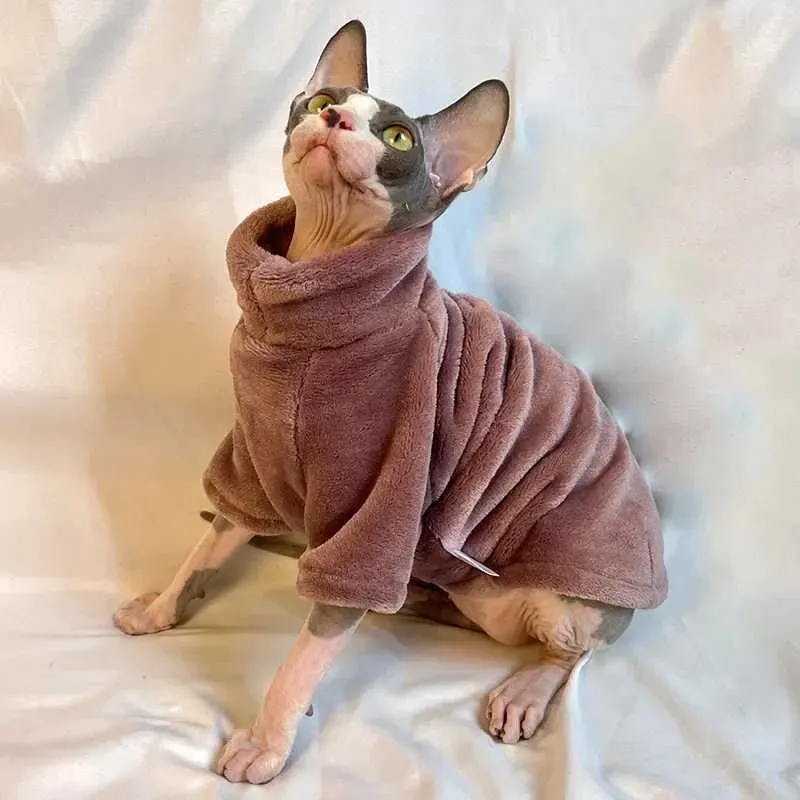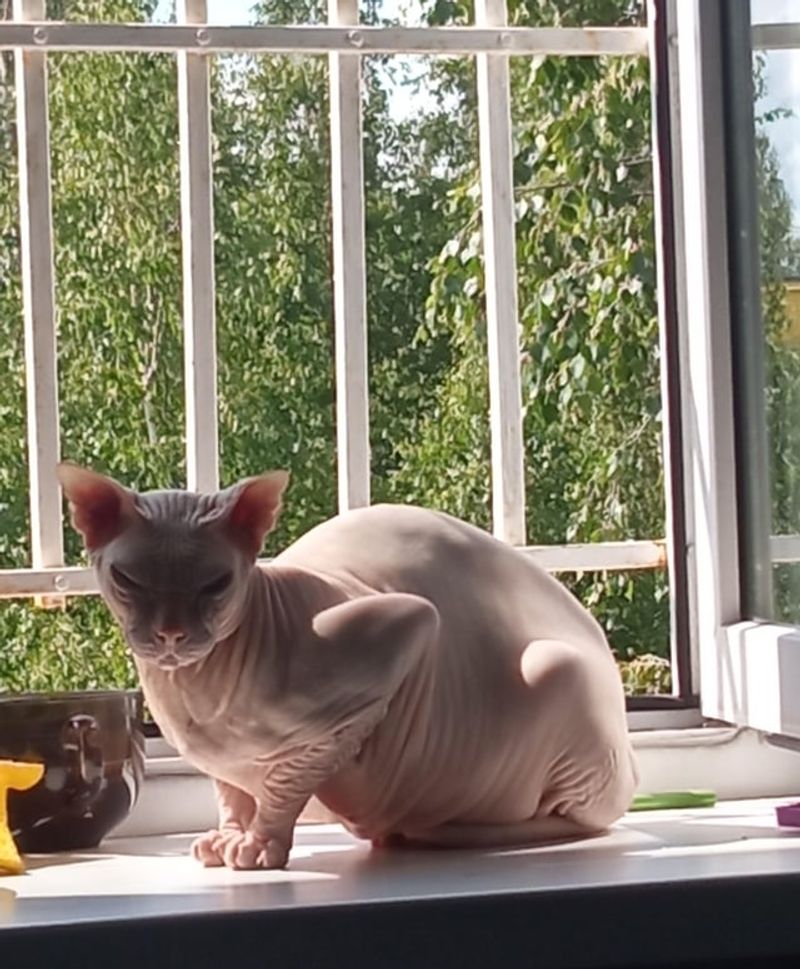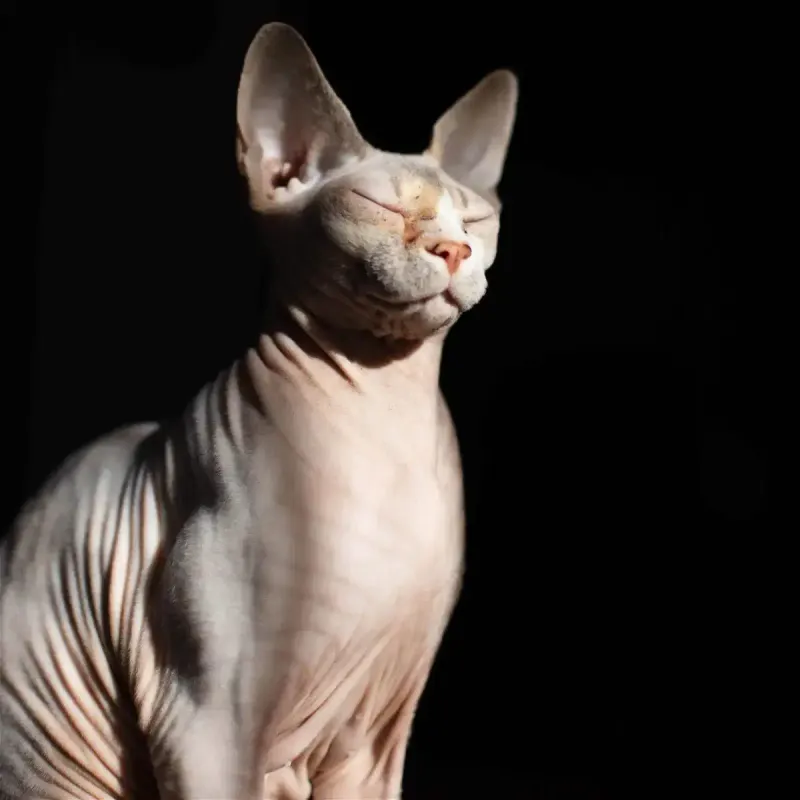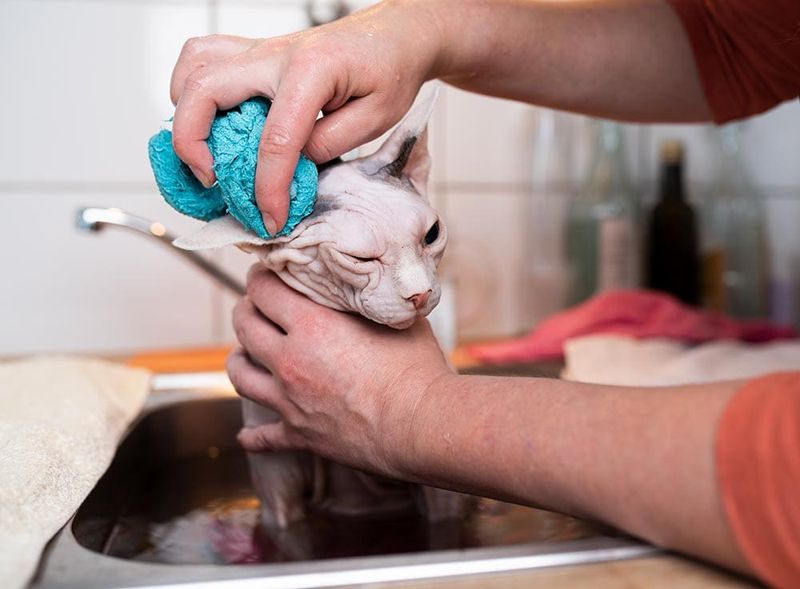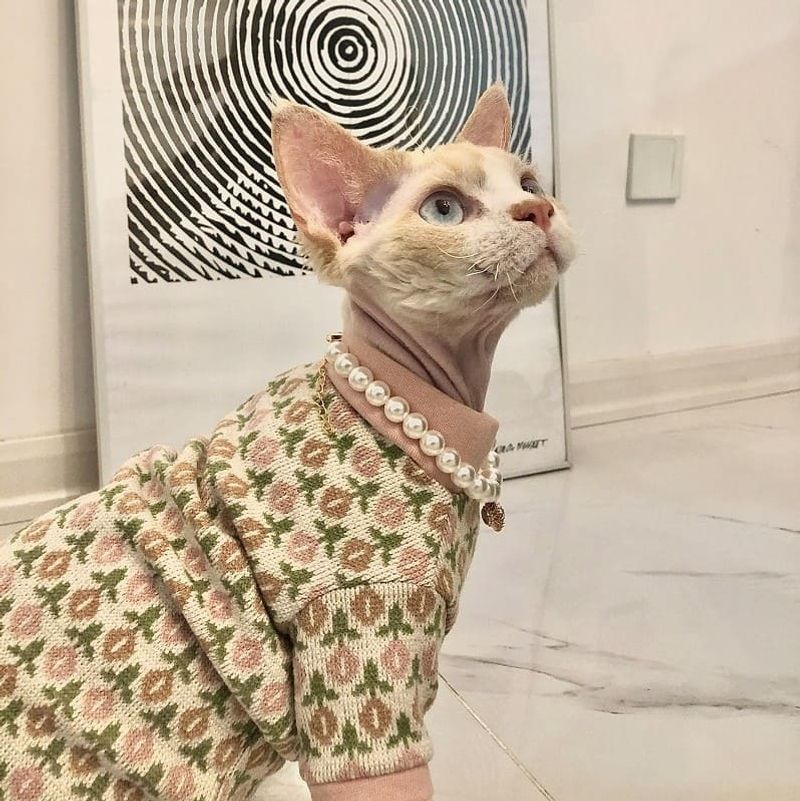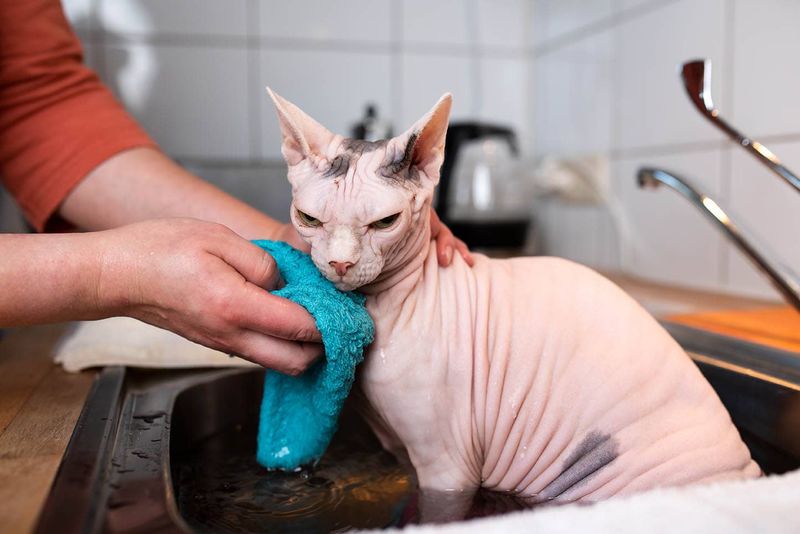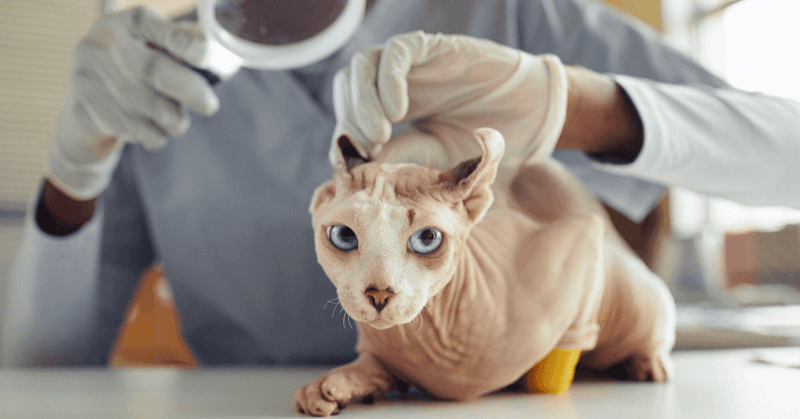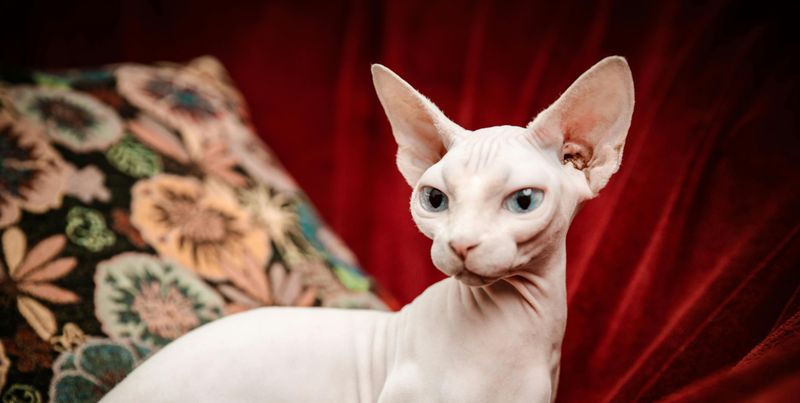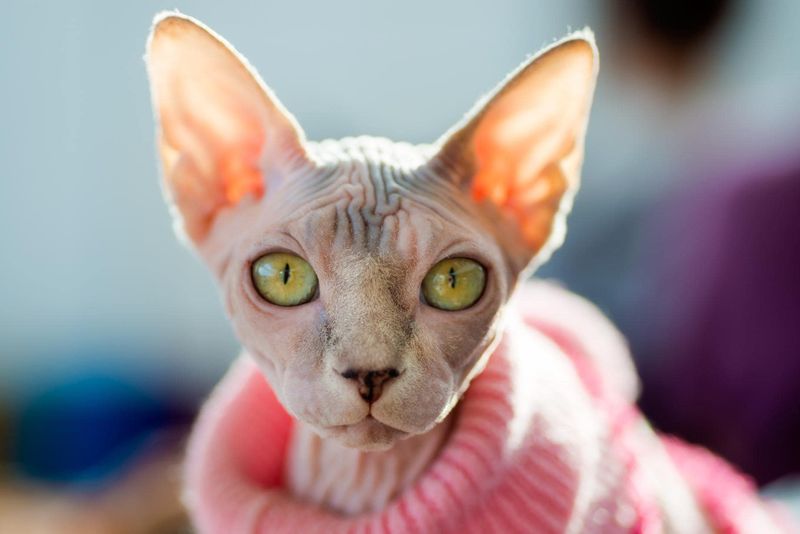📖 Table of Content:
The Sphynx cat, with its iconic hairless appearance and oversized ears, certainly turns heads and captures hearts. Often seen as exotic and intriguing, this breed has become increasingly popular among cat lovers looking for something different. However, behind the alluring exterior lies a complex set of needs that not every potential pet owner is ready for.
While some adore the Sphynx for its quirky charm and affectionate personality, others find its care requirements unexpectedly demanding. Contrary to the belief that “no fur” means “low maintenance,” the Sphynx actually requires more grooming and specialized care than most long-haired cats. These cats also come with unique health considerations, behavioral traits, and environmental needs that make them quite different from your average feline.
Before welcoming one into your home, it’s essential to look beyond the novelty and really understand what living with a Sphynx entails. This breed is not simply a bald version of a domestic shorthair—it’s a breed with intense needs, requiring time, money, and dedication. To help you decide whether a Sphynx is the right pet for you, here are 10 reasons why they might not be the perfect fit for everyone.
1. High Maintenance Grooming Needs
Many people assume that a hairless cat is effortless to care for, but the reality is quite the opposite. Weekly baths are almost non-negotiable to remove the oil and dirt that build up on their skin. Unlike furry breeds that have a natural barrier, the Sphynx’s exposed skin collects grime quickly, especially in warm environments. Skipping baths can lead to breakouts, irritation, or even infections. Additionally, their skin folds must be carefully cleaned and dried to prevent moisture buildup and bacterial growth. Owners often need to develop a grooming routine that includes specialized wipes and hypoallergenic pet shampoos. If daily maintenance isn’t your thing, this breed might quickly become overwhelming.
2. Temperature Sensitivity
Cold weather can be particularly harsh for Sphynx cats, who lack the protective layer of fur most other cats enjoy. Owners often find themselves investing in feline clothing or heated beds to keep their pet comfortable. Leaving a window open on a chilly day can cause serious discomfort or even illness. They tend to seek warmth constantly, whether it’s burrowing under blankets or snuggling with their humans. A drafty house or frequent temperature changes can make life miserable for these sensitive felines. Constant vigilance over indoor temperatures is not a luxury but a necessity. If you’re someone who enjoys a cool home or lives in a cold climate, this may pose a daily challenge.
3. Sunburn Risk
Direct sunlight can be dangerous for the Sphynx, as their bare skin has no natural protection. Even just lounging by a sunny window for too long can result in sunburn. Pet-safe sunscreen is sometimes needed, but many cats dislike the sensation, making application difficult. Shade and filtered sunlight become essential to their well-being. Owners may have to rearrange their homes or limit outdoor access to manage sun exposure. Unlike their furry cousins who can bask freely, Sphynx cats need a controlled environment. If you’re not ready to micromanage your cat’s sun time, this breed may not be ideal.
4. Skin Issues
Skin conditions are a common concern with this breed, often requiring regular vet visits and treatment. Acne, fungal infections, and rashes can develop if their skin isn’t properly cared for. Keeping them clean is crucial, but even with the best hygiene, skin problems can still arise. Some cats have sensitivities to certain materials or detergents, adding another layer of complexity. Constant monitoring for redness, bumps, or dry patches becomes a part of routine care. Sphynx owners often need to be proactive and informed about dermatological health. If managing frequent skin issues doesn’t sound appealing, you may want to consider a lower-maintenance breed.
5. Frequent Ear Cleaning
The large ears of a Sphynx cat are wax magnets and require regular, often weekly, cleaning. Without proper care, debris can build up quickly, leading to discomfort or infections. Cotton swabs and pet-safe ear cleansers become staples in your pet care kit. Many cats dislike having their ears handled, so gentle training and patience are essential. Neglecting this task can lead to vet bills and unnecessary suffering. Ear hygiene isn’t just a suggestion—it’s a core part of Sphynx maintenance. If you’re squeamish about ear cleaning or lack the time to do it properly, this breed might prove too demanding.
6. Strong Body Odor
A surprising reality for some Sphynx owners is that these cats can develop a distinct, sometimes unpleasant smell. This is largely due to the accumulation of oils on their skin, which isn’t absorbed by fur. Regular bathing can help, but in some cases, the odor persists regardless of cleaning efforts. Diet and hormonal changes can also affect how they smell. Sensitive noses may find this breed more difficult to live with, especially in small apartments. Not everyone can tolerate the natural scent that some Sphynx cats produce. If you’re particular about your home’s aroma, this might be a dealbreaker.
7. Not Hypoallergenic
There’s a widespread myth that Sphynx cats are hypoallergenic, but this is not entirely true. Allergens like the Fel d 1 protein in saliva and skin oils are still present, and often more concentrated due to lack of fur. People with allergies may still react strongly to this breed despite its bald appearance. Some even report worse symptoms compared to furry cats because of increased skin contact. Regular cleaning can help, but it won’t eliminate the allergen completely. Allergy sufferers must approach with caution and perhaps schedule trial visits with a Sphynx before adopting. If you’re hoping for a truly hypoallergenic pet, you may need to keep looking.
8. Expensive Upkeep
The initial cost of acquiring a Sphynx is often high, but ongoing care adds up quickly. Specialized food, skincare products, frequent vet checkups, and heating accessories can all strain a budget. Certain genetic conditions common to the breed—like hypertrophic cardiomyopathy—require expensive monitoring. Even bathing supplies need to be high-quality and safe for sensitive skin. Many owners are surprised at how fast the bills add up. Financial planning is critical when considering this breed. If you’re on a tight budget, a Sphynx might not be the most practical choice.
9. Attention-Seeking Personality
These cats are not the type to lounge in the corner quietly; they thrive on constant interaction. Sphynx cats often follow their humans around, chirp for attention, and demand cuddles throughout the day. Left alone too long, they can become bored, anxious, or even destructive. Their dog-like loyalty can be endearing, but also exhausting for people who value solitude. This breed needs toys, playtime, and often, a feline companion to stay mentally healthy. You’ll be their favorite person—and their entire world. If you prefer an independent pet, the Sphynx might feel more like a clingy roommate.
10. Not Suited for Every Lifestyle
The Sphynx cat requires an environment tailored to its unique needs—something not everyone can provide. Their care schedule must be maintained consistently, with no room for neglect or shortcuts. Owners must be attentive, educated, and prepared to deal with surprises. Travel and routine changes can cause stress for this breed, making them less adaptable than others. Their physical vulnerability means they must be protected even in everyday scenarios. People with unpredictable schedules or minimal home presence may struggle to meet these demands. If your lifestyle leans toward the spontaneous, a more adaptable breed might be a better fit.
